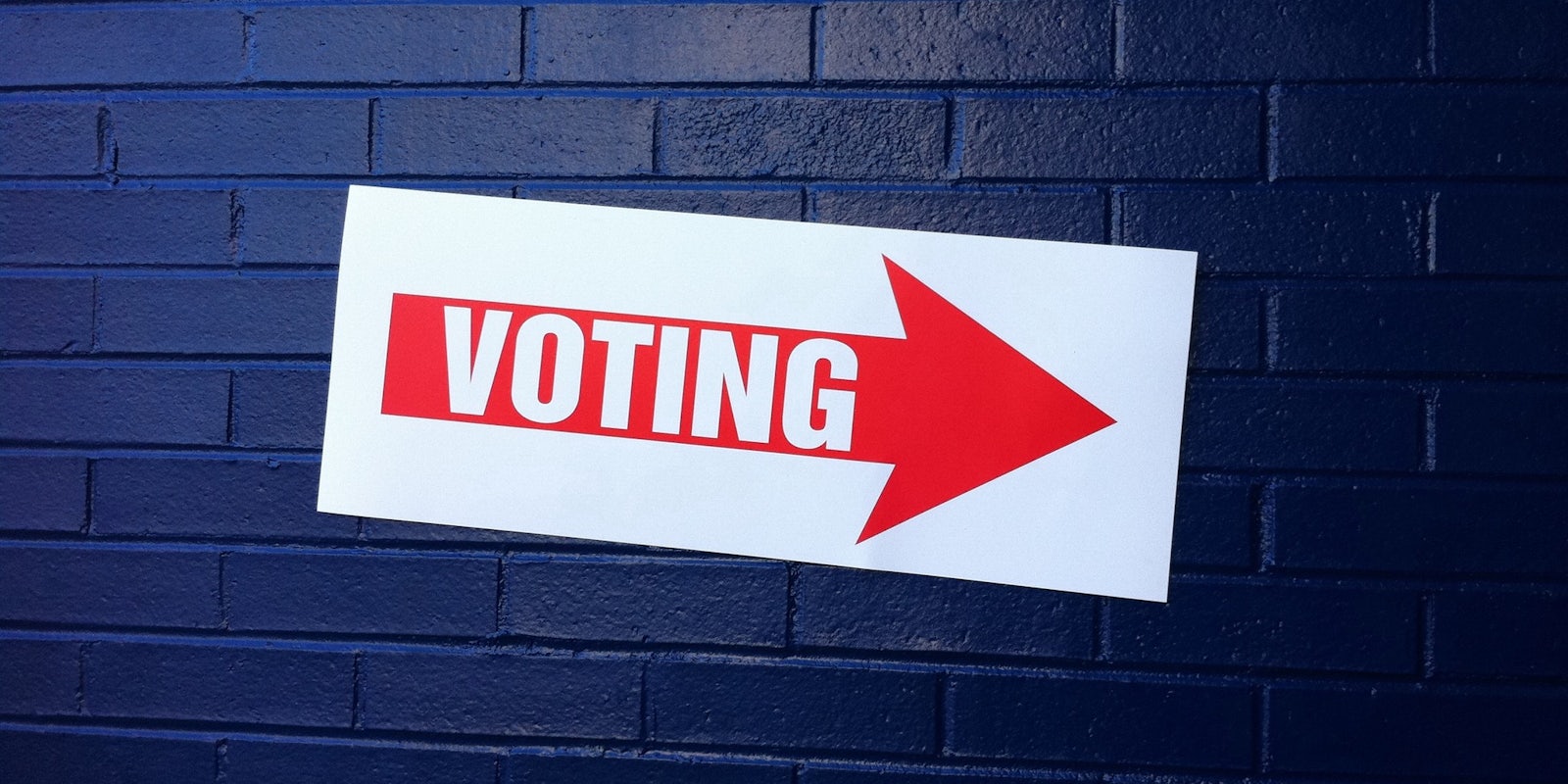A new survey found that one fifth of respondents might stay home on Election Day because their fear that hackers could compromise the country’s voting machines.
The survey, conducted by cybersecurity company Carbon Black, sampled 700 registered voters, aged 18 to 54, in an online poll. Conducted by PollFish, it found more than a third of respondents said they felt election systems were “somewhat insecure” or “very insecure,” and 20 percent of those said their concerns were strong enough they would consider not voting.
Online surveys often lack the rigorous methodology found in traditional telephone polls, in which the surveyed sample is carefully selected to be representative of the American people as a whole, and can therefore be extrapolated to indicate the nation’s attitudes or likely actions. So while Carbon Black’s data can’t be extrapolated to represent Americans’ attitudes—or the likelihood that they will stay home in November due to fears around voter hacking—it does offer an interesting window into the rise of these sentiments. Especially in light of how incredibly unlikely it is that a hacker could affect election results.
There are few, if any, documented cases of someone actually hacking a voting machine to alter the results of an election. But researchers have found numerous vulnerabilities in the U.S.’s hodgepodge of old voting machines, meaning a dedicated saboteur could change a few hundred votes. And in a separate issue, someone—U.S. intelligence officials insist the Russian government is the likely culprit—has attempted to hack voter registration databases in a number of states. Previous hacks in two states, Arizona and Illinois, were successful. Those hacks were to extract information on voters, however, and not to directly alter an election outcome.
Experts have long cautioned that just because there is the possibility of a hack doesn’t mean one is likely. Other problems, like long lines or old machinery, are historically a far bigger threat to a vote getting counted. “Equipment malfunction has always been the biggest risk in running computerized elections,” Joseph Lorenzo Hall, chief technologist at the Center for Democracy and Technology, and who has studied ballot systems, told Vocativ. “We don’t have a lot of evidence of people hacking or maliciously attacking election systems.”
But that latter message seems to not gotten through to many Americans.
The survey shows voters fear threats coming from a number of sources — most likely from inside the U.S., then Russia, but also China, North Korea, and even candidates themselves.
Of course, “hack” is a malleable term. It could describe not only a criminal sneaking into a voting booth to tamper with a computer inside, but also an attempt to alter a vote tally held in an online database. It could even refer an attempt to discredit the elections process in general — Republican candidate Donald Trump has been heavily criticized for postulating in August that the elections might be “rigged.”
But as FBI director James Comey recently stated, the U.S.’s patchwork election system, in which states conduct their own elections and standards and equipment vary wildly, means there’s not much of an overall system to hack—which makes it more difficult for a dedicated hacker to cause much damage.
“The beauty of the American voting system is that it is dispersed among the 50 states, and it is clunky as heck,’’ Comey said in a panel discussion in early September. “A lot of people have found that challenging over the years, but the beauty of that is it’s not exactly a swift part of the internet of things, and so it is hard for an actor to reach our voting process.”


